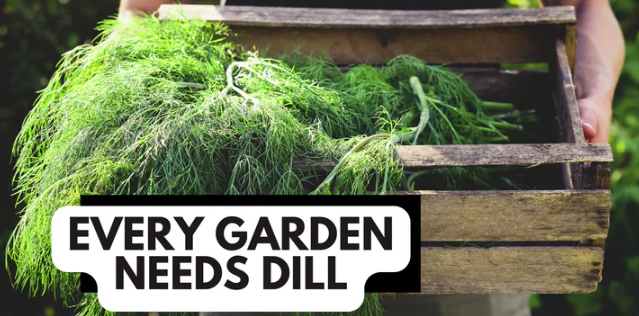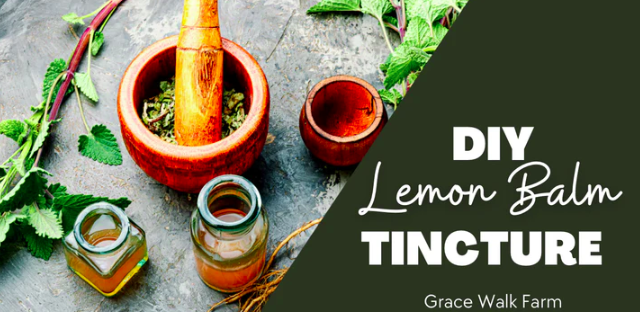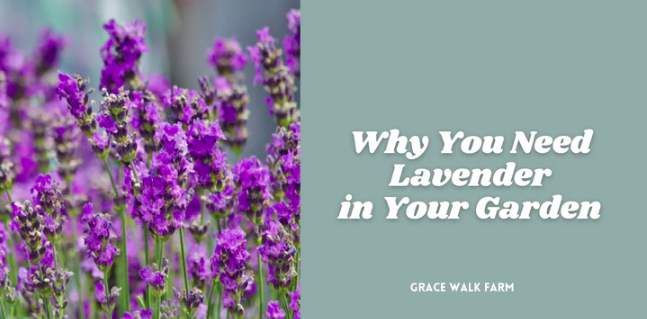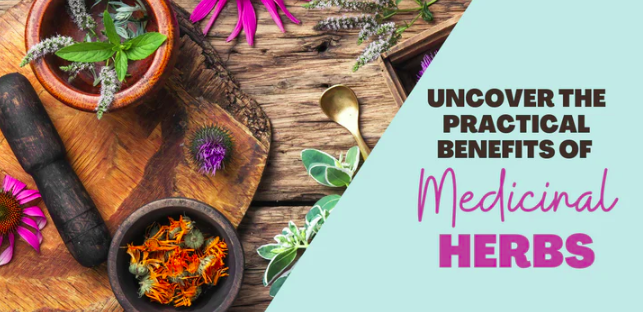Growing dill is a fun project for even a beginner gardener and spring is the perfect time to plant dill in your garden. If you’re looking to add some flavor and health benefits to your garden, growing dill is a great option. Dill is a hardy annual herb that can repel garden pests and it has a variety of uses in the kitchen and beyond.
Welcome to Grace Walk Farm, our family homestead in western NC. We share the highs and lows of our homestead journey, in hopes that it will encourage you to grow your own food too. Click here to grab our Beginner Garden Guide for free! Join our 600K strong Instagram community of homesteaders here. Thanks for stopping by!

Let’s start by unlocking some of the benefits of growing dill:
Culinary Uses
Dill is probably best known for its culinary uses. It has a unique, tangy flavor that can enhance the taste of many foods. Dill is commonly used in pickling recipes, but it can also be added to soups, stews, and salads. The leaves and stems of the dill plant are both edible and can be used fresh or dried.
Health Benefits of Dill
In addition to its culinary uses, dill is also known for its health benefits. It is a good source of vitamin C, iron, and calcium. Dill is also known to have anti-inflammatory and anti-bacterial properties. It has been used to aid digestion, treat bad breath, and reduce menstrual cramps.
Dill Attracts Beneficial Insects
Dill is known to attract beneficial insects, such as ladybugs and lacewings. These insects can help to control pests in your garden and improve the overall health of your plants.
Easy to Grow
Dill is a hardy annual herb that is easy to grow from seed. It doesn’t require a lot of maintenance and can be grown in containers or directly in the ground. Dill prefers well-drained soil and full sun, but it can tolerate some shade.
Adds Beauty to Your Garden
Dill has feathery green leaves and produces clusters of yellow flowers that can add a touch of beauty to your garden. The flowers also attract pollinators, such as bees and butterflies.
Provides Seed for Future Use
Dill produces seeds that can be harvested and used for future planting or culinary uses, such as making pickles.
Complements Other Plants
Dill is a good companion plant for certain vegetables, such as tomatoes, cucumbers, and lettuce. It can help to repel pests and improve the overall health of your garden.

Ways to Use and Preserve Dill
Now that we’ve covered some of the benefits of growing dill, let’s talk about ways to use and preserve it.
Fresh Dill
Fresh dill can be used in a variety of ways in the kitchen. It pairs well with fish, chicken, and potatoes. Dill can also be used to make dressings, dips, and spreads. To use fresh dill, simply chop the leaves and stems and add them to your recipe.
Dried Dill
Dried dill can be used in place of fresh dill in recipes. To dry dill, simply cut the stems and hang them upside down in a dry, well-ventilated area. Once the dill is dry, remove the leaves and store them in an airtight container.
Frozen Dill
Dill can also be frozen for later use. To freeze dill, chop the leaves and stems and place them in an ice cube tray. Add water and freeze. Once the dill cubes are frozen, remove them from the tray and store them in a freezer bag.
Pickling
Dill is a popular herb for pickling. The leaves and stems can be added to the pickling liquid to add flavor and help preserve the pickles. Dill pickles are a classic recipe, but you can also use dill in pickled vegetables like carrots, beets, and green beans.
Infused Oils and Vinegars
Dill can also be used to infuse oils and vinegars. Simply add fresh dill to a bottle of oil or vinegar and let it sit for a few days. The dill will infuse the flavor into the liquid, creating a delicious addition to your cooking.
Herb Butter
Dill can be used to make herb butter, which is a great way to add flavor to dishes like steak, vegetables, or toast. Simply mix chopped dill with softened butter and refrigerate until firm.
Herb Salt
Dill can also be used to make herb salt, which is a great way to preserve the herb and add flavor to your cooking. To make herb salt, simply mix fresh dill with coarse sea salt and let it dry out for a few days. Once the salt is dry, store it in an airtight container.
Dill is a versatile herb that can be used in a variety of ways in the kitchen. Whether you use it fresh, dried, or preserved, dill can add flavor and nutrition to your meals. Additionally, growing dill can provide a range of benefits for your garden, from attracting beneficial insects to complementing other plants.

Tips for Growing Dill
Now, let’s discuss some tips for growing dill successfully:
- Planting: Dill is best grown from seed, which should be planted directly in the ground or in containers. Plant the seeds about ¼ inch deep, and space them about 12 inches apart.
- Sunlight: Dill prefers full sun but can tolerate some shade. Be sure to choose a location that gets at least 6 hours of sunlight per day.
- Watering: Dill doesn’t require a lot of water, but it should be watered deeply once a week. Be sure to let the soil dry out between watering to prevent overwatering.
- Fertilizer: Dill doesn’t require a lot of fertilizer, but it can benefit from a small amount of compost or organic fertilizer in the spring.
- Harvesting: Dill can be harvested once the plants are about 12 inches tall. The leaves and stems can be harvested at any time, but the flavor is strongest just before the flowers appear.
- Pruning: To encourage bushy growth, pinch off the top of the dill plant once it reaches about 12 inches tall.
- Companion Planting: Dill is a good companion plant for certain vegetables, such as tomatoes, cucumbers, and lettuce. It can help to repel pests and improve the overall health of your garden.
Final thoughts…
Growing dill is an easy and rewarding experience that can provide a range of benefits for your kitchen and garden. Dill’s unique flavor, health benefits, and versatility make it a great addition to any herb garden. By following these tips for growing and preserving dill, you can enjoy this delicious herb all year round.
Looking for more garden help?
Enroll in my “Gardening Guide” here.
Ready to take a deep dive into all things herbs? About a year ago, I signed up for my first course at Herbal Academy and I’ve been digging deep into herbalism ever since. There’s a fascinating world of medicinal plants all around you. Start learning with me here.
Also check out these blogs:




